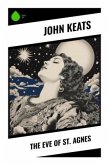Samuel Taylor Coleridge's "The Rime of the Ancient Mariner" is a seminal work within the Romantic literary tradition, combining rich imagery and sophisticated symbolism to explore profound themes of guilt, redemption, and the interplay between man and nature. Written in a ballad form, the poem employs a range of narrative techniques, weaving together elements of the supernatural and the moral. Coleridge's lyrical mastery is evident in his vivid descriptions and haunting rhythms, capturing the reader's imagination while delving deep into the psyche of the mariner and his harrowing journey through the treacherous waters of despair and longing. Coleridge, a key figure in the Romantic movement, was deeply influenced by his own tumultuous experiences and philosophical inquiries, including the power of nature and the human condition. His personal struggles with addiction and his quest for transcendence informed the poem's exploration of isolation and the search for meaning. "The Rime of the Ancient Mariner" serves not only as a story of supernatural adventure but also as a reflection of Coleridge's deep engagement with ethical and existential questions. Readers are encouraged to immerse themselves in Coleridge's masterwork for its rich thematic depth and profound emotional resonance. This poem remains a cornerstone of English literature, inviting readers to reflect on the consequences of their actions and the interconnectedness of all living things. Its timeless exploration of morality and redemption assures its place in the pantheon of enduring literary classics.
Bitte wählen Sie Ihr Anliegen aus.
Rechnungen
Retourenschein anfordern
Bestellstatus
Storno








